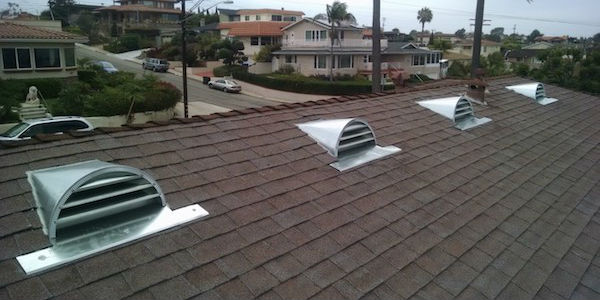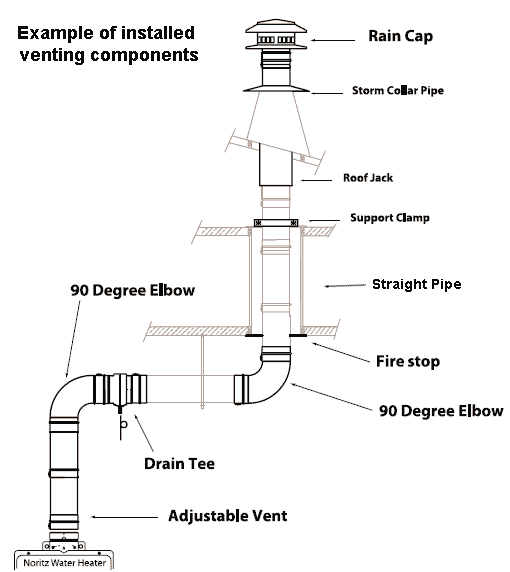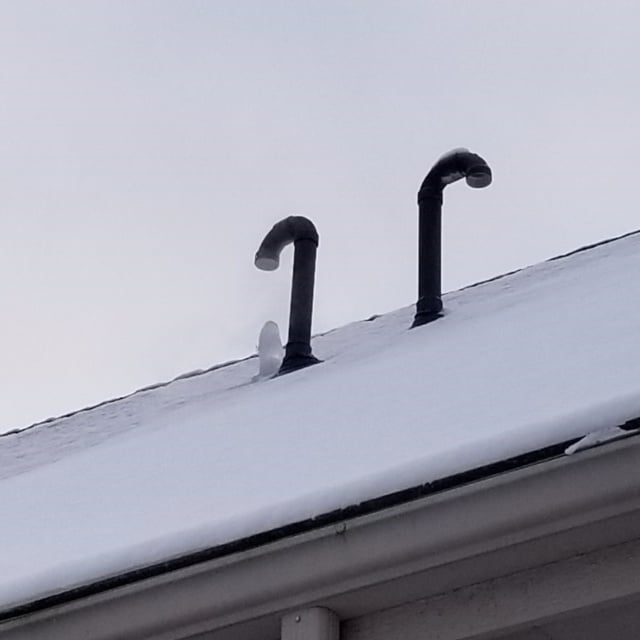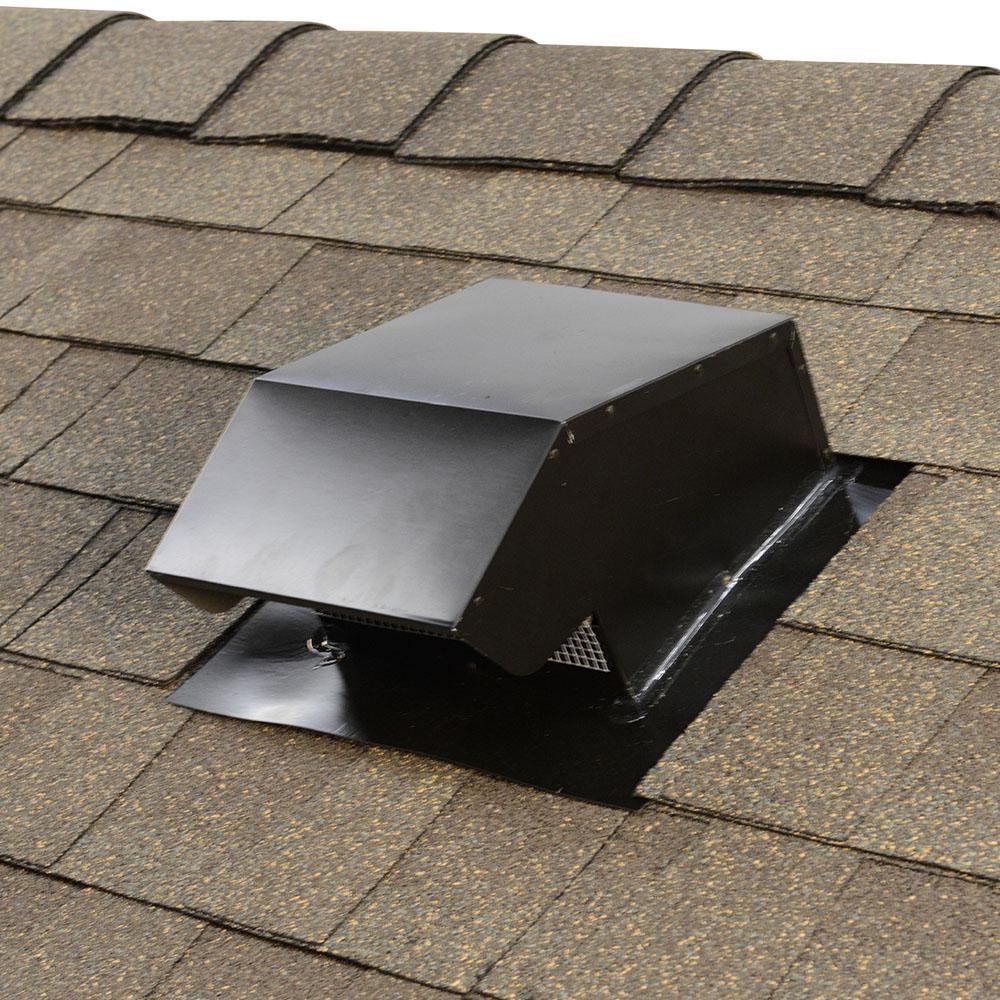In contrast modern high efficiency condensing furnaces exhaust much cooler gasses and need only plastic pipe materials such as pvc cpvc or abs for their exhaust vents some high efficiency furnaces also include a plastic pipe for intake area and all types.
Roof venting for 90 furnace.
For many homes a gas furnace is the preferred heating device it has proven to be an efficient and reliable way of meeting household heating needs over the years.
The concentric vent allows both the intake for combustion air and the exhaust vent to pass through a standard roof or sidewall.
The exhaust system typically uses metal venting often routed into a chimney stack to exhaust the combustion gases created in the furnace fire chamber.
A conventional natural gas furnace will vent the dangerous combustion gases through a simple vertical exhaust system that is attached to the furnace.
Later in the section on vent system design the effects of friction losses from bends is covered in.
Of the vent system.
An excessive number of bends in a vent can overcome the drafting action completely.
Goose neck vent in black can be used to cover exhaust pipes extending through your roof or for attic ventilation.
It s made of zinc coated galvanized steel for durability and reliability.
Most charts allow two 90 bends in the vent as they are written.
Traditional gas fired forced air furnaces produce hot combustion exhaust gasses and therefore need metal vent pipes or chimneys.
If your furnace has an afue rating below 90 percent it will most likely have a flue pipe that goes up through your roof.
Goose neck vent the master flow 4 in.
The different types of venting.
Always consult the local building department beforehand to determine.
Cvent 3 is for use with 3 in.
This is an alternative to the standard two pipe intake vent shown in the basic furnace installation instructions.
A high efficiency furnace uses a different type of venting system because it extracts the heat that remains in those combustion gases before venting the resultant mixture of water and carbon dioxide.
Typically vents attach to a flange at the top or back of a furnace and may run through the roof or through an outside wall.
If your furnace has an afue rating of 90 percent or above it will have a flue pipe that.
A conventional furnace vents these combustion gases through a vertical exhaust system that is attached to the furnace.
Added 90 bends in the vent system cause a 10 loss in vent capacity.
The vent pipe or flue is a vital component of the furnace that transmits emissions from the combustion process out of the building.
When we are talking about gas furnace vent pipe code we need to talk about the different types of the vents first after all you want to keep your family safe from harm.
This vent is designed to be used on 4 in.









